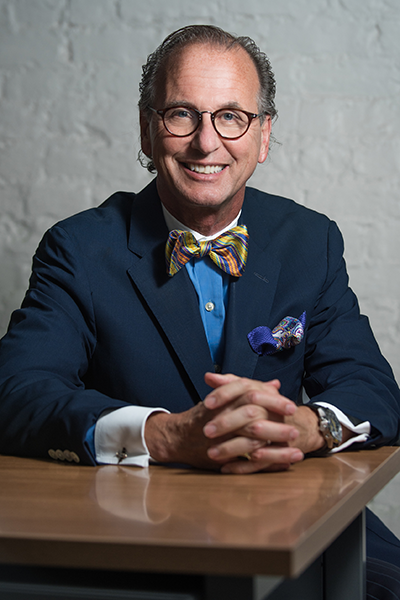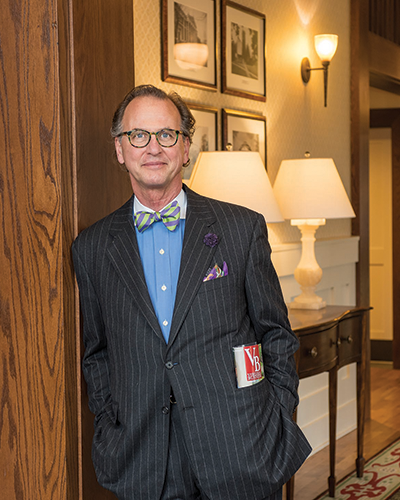Once upon a time, I worked for a big company. Not for a short time, but a decades-long time. Somewhat unfortunately, I remember those years perhaps too well. Thousands of employees, rules, policies, a big human resources department, politics and power were all concentrated inside the headquarters building. And the customers were on the outside of that cultural equation.
Looking back, it is no surprise that company no longer exists.
In earlier days, the nation’s entire economy was oriented toward big companies. When I was growing up, my father was a company man. And, albeit in a different industry, I became one too.
In the post-WWII years, our nation transformed from an agricultural economy to one driven by manufacturing. Being a company man was the established norm. Around this time, Northern Virginia rose from swampland, eventually becoming the center of Virginia’s economy. Some might say Dee Cee is still a swamp — but that’s another story.
With the rise of more sophisticated supply-chain logistics, a truly global economy emerged in the ’70s and ’80s. Big manufacturing was increasingly offshored. The U.S. economy became largely dominated by financial markets and professional services. It was around this time that that my career began.
Three decades later, in late 2009, I found myself walking out of that big company’s door for the last time along with one of its best brands, Virginia Business.
For me, this was an entirely new phase. Entrepreneurship, innovation and disruption seemed like new concepts then.
Today, we have the gig economy. Economic development is evolving from wooing automotive and parts manufacturers to chasing craft brewers, high-tech server farms, app developers and co-working spaces. It’s a different world from just a decade ago and, of course, change never ends.
Looking forward, the rise of artificial intelligence, robotics and autonomous vehicles will inevitably lead to what some have termed the jobless economy.
Historically, the global system of wealth has been built upon the value of labor. What happens when labor is devalued or even eliminated? Ideas that sound farfetched, like a guaranteed minimum income, begin to gather momentum in that kind of future. Politics aside, it is hard to say such things won’t happen, and Virginia Business looks forward to chronicling these developments as we enter a new decade.
Change comes to all industries. For at least the last 400 years, the media business has been capital intensive and largely supported by advertising. The cost of a printing press or an FCC license, a broadcasting tower and transmitter were formidable barriers to entry. And the stewardship of such long-term capital investments kept the business of journalism a largely ethical and responsible enterprise. In an age of dubious facts distributed via social media and fly-by-night online sources, that isn’t always the case anymore.
Regardless of changes in technology or our economy, at Virginia Business we believe ethics and responsibility are still important values because truth is important to our democracy.
And we also believe in the power of big ideas.
Back in 2012, I picked up my mail one day to find Vanity Fair magazine’s annual Hollywood Issue. It ran some 600 pages long. Tucking it under my arm, I thought, “Why can’t I have a big book?”
And that’s how this particular big idea was born.
Welcome to our eighth annual Big Book. It is our vehicle for telling the big stories that constitute our commonwealth’s economic successes.
This is our biggest issue of the year and while we’re not near 600 pages yet, we’re still hoping!
Many thanks to our loyal readers and advertisers for being a part of Virginia Business’ big story.
Most importantly, it’s true.


 Richard Foster takes on a new role heading our editorial staff this month. But first, let me share some thoughts about our departing editor, Robert Powell.
Richard Foster takes on a new role heading our editorial staff this month. But first, let me share some thoughts about our departing editor, Robert Powell. No doubt. Virginia was the big winner in the competition for an East Coast headquarters for Amazon. Originally pitched as a single project, the headquarters eventually was split into two, with Arlington and Queens in New York City being announced as the winning locations. That appeared to be the climax of a 14-month selection process involving nearly 240 competing locations across the U.S. Then, the unthinkable happened in Queens — politics got in the way, and Amazon pulled out of New York.
No doubt. Virginia was the big winner in the competition for an East Coast headquarters for Amazon. Originally pitched as a single project, the headquarters eventually was split into two, with Arlington and Queens in New York City being announced as the winning locations. That appeared to be the climax of a 14-month selection process involving nearly 240 competing locations across the U.S. Then, the unthinkable happened in Queens — politics got in the way, and Amazon pulled out of New York. Since 2006, Virginia Business has presented its annual CFO Awards. Being a chief financial officer always has been a taxing job, but back then things were just beginning to get a lot tougher. Who knew then that the subprime mortgage crisis would engender the deepest recession since the Great Depression?
Since 2006, Virginia Business has presented its annual CFO Awards. Being a chief financial officer always has been a taxing job, but back then things were just beginning to get a lot tougher. Who knew then that the subprime mortgage crisis would engender the deepest recession since the Great Depression?